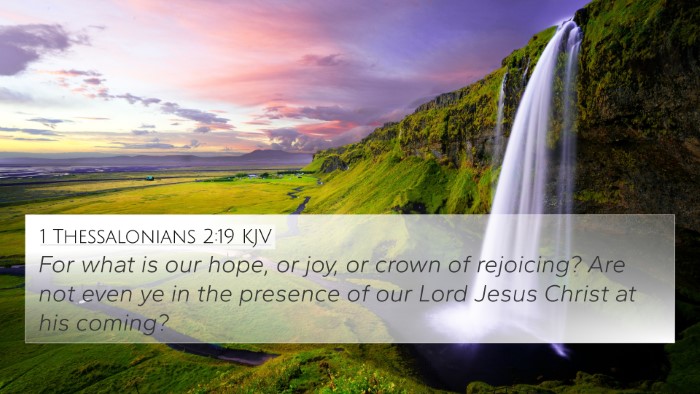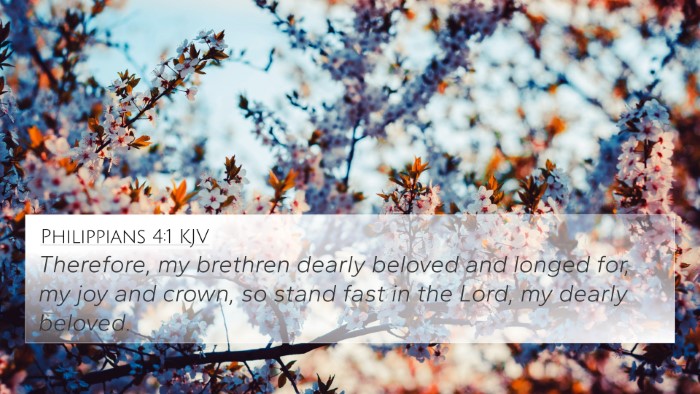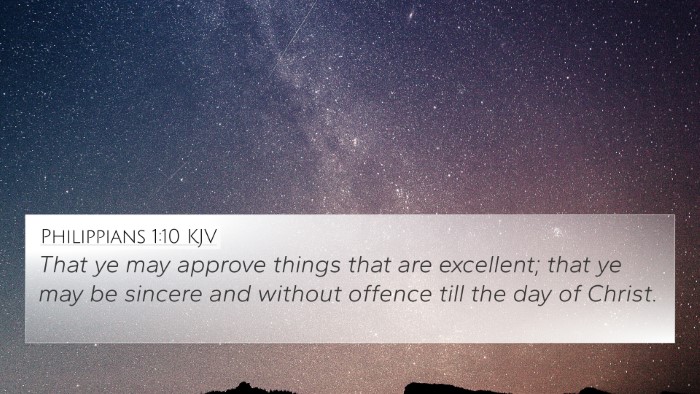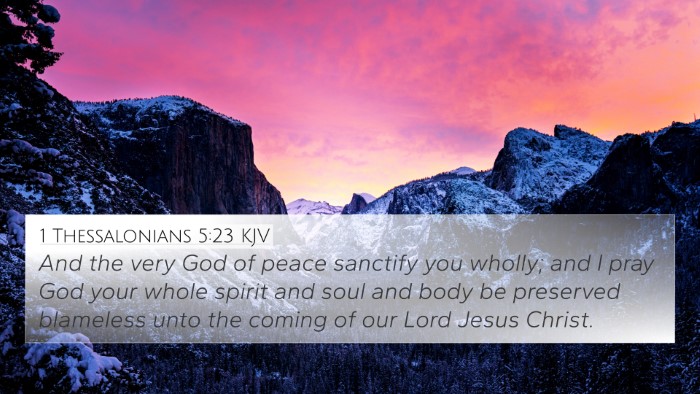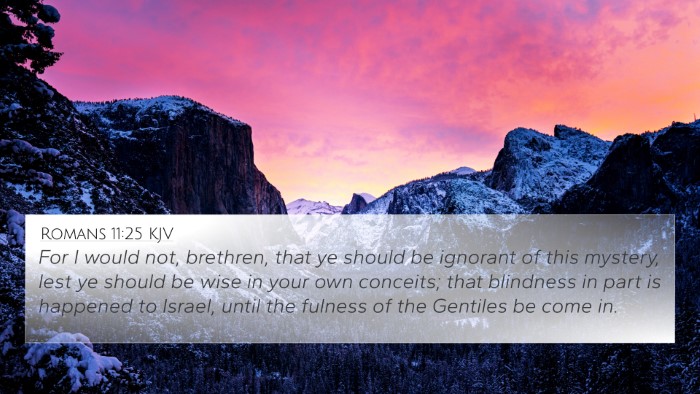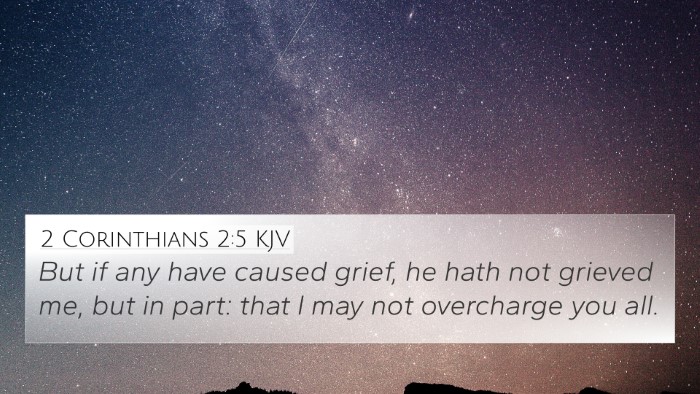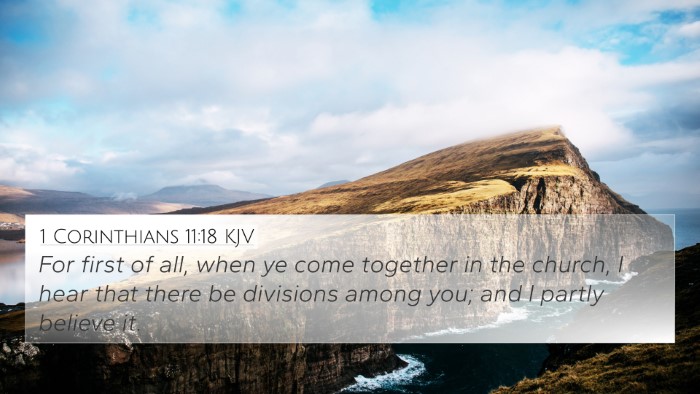Understanding 2 Corinthians 1:14
Verse: "As also ye have acknowledged us in part, that we are your rejoicing, even as ye also are ours in the day of the Lord Jesus."
Contextual Overview
In this verse, the Apostle Paul addresses the Corinthian church, reinforcing his relationship with them and their mutual joy. Paul emphasizes the acknowledgment of his apostolic authority and the rejoicing they share in the hope of Christ's return. The verse reflects themes of unity, acknowledgment of authority, and the celebration of faith in Christ.
Commentary Insights
Matthew Henry Commentary
According to Matthew Henry, Paul expresses excitement over the relationship he shares with the Corinthians. He underscores that their recognition of him in part signifies a deeper spiritual connection. Henry explains that this acknowledgment is both an honor to Paul and an expression of the communal rejoicing that will culminate at the Day of the Lord. The connection reflects the idea that their joy is intertwined and will be fully realized when Christ returns.
Albert Barnes Commentary
Albert Barnes focuses on the implications of the "rejoicing" mentioned in the verse. He notes that Paul's emphasis on mutual acknowledgment serves to strengthen the bond between him and the Corinthian believers. Barnes elaborates that the joy referred to is both present and eschatological, linking their current experiences of comfort and revelation to the ultimate joy they will share at the return of Jesus. Paul, as their apostle, takes joy in their standing in the faith, and they, in turn, should recognize their connection to him.
Adam Clarke Commentary
Adam Clarke highlights the necessity of mutual recognition in the Christian community. He points out that this acknowledgment is essential to Paul’s authority as an apostle and speaks to the importance of respect in spiritual relationships. Clarke suggests that this rejoicing is a mutual affirmation of faith and hope in Christ, which will culminate on the Day of Judgment when their faith will be justified before God.
Related Bible Cross-References
- Philippians 1:5: "For your fellowship in the gospel from the first day until now."
- 1 Thessalonians 2:19: "For what is our hope, or joy, or crown of rejoicing? Are not even ye in the presence of our Lord Jesus Christ at his coming?"
- Romans 12:10: "Be kindly affectioned one to another with brotherly love; in honour preferring one another."
- 2 John 1:4: "I rejoiced greatly that I found of thy children walking in truth, as we have received a commandment from the Father."
- 1 Corinthians 3:8: "Now he that planteth and he that watereth are one: and every man shall receive his own reward according to his own labour."
- 1 Corinthians 1:10: "Now I beseech you, brethren, by the name of our Lord Jesus Christ, that ye all speak the same thing, and that there be no divisions among you."
- Galatians 6:2: "Bear ye one another's burdens, and so fulfill the law of Christ."
- 2 Peter 1:12: "Wherefore I will not be negligent to put you always in remembrance of these things, though ye know them, and be established in the present truth."
Connections Between Bible Verses
The verse establishes a framework for understanding the importance of relationships among believers. The themes of joy, acknowledgment, and communal faith found in 2 Corinthians 1:14 echo throughout the New Testament. By examining the correlations between Paul's epistles and the broader biblical narrative, one can observe thematic Bible verse connections that enrich our understanding.
Finding Cross-References in the Bible
To deepen our understanding of 2 Corinthians 1:14, it is beneficial to explore resembling passages throughout Scripture. Tools for Bible cross-referencing, such as a Bible concordance, can assist in identifying connections not only within Paul's writings but also between the Old and New Testaments.
Conclusion
2 Corinthians 1:14 invites believers to reflect on their spiritual relationships and the joy that comes from mutual acknowledgment in Christ. Through the lens of public domain commentaries, it becomes clear that Paul’s words resonate with themes of unity and hope in the context of the Christian faith. By engaging in comparative Bible verse analysis and utilizing effective tools for Bible cross-referencing, we are better equipped to learn from Scripture's interconnected messages.
Additional Study Tools
- Bible cross-reference guide
- Cross-reference Bible study methods
- Bible chain references
- Comprehensive Bible cross-reference materials




